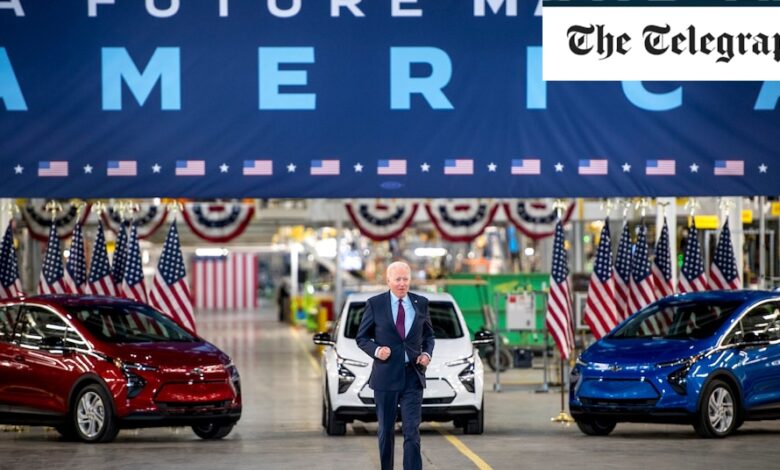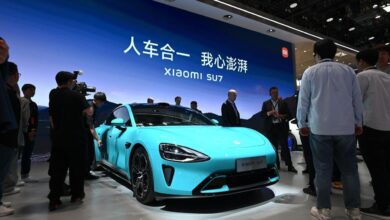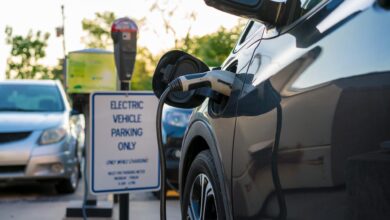Biden prepares to slap tariffs on Chinese electric cars

Joe Biden is poised to quadruple trade tariffs on Chinese electric vehicles (EVs) as the US ramps up tensions with Beijing.
The move by the US President came amid fresh measures to tax green energy technologies from China, such as batteries and solar panels, as well as critical minerals and semiconductors.
It follows a year-long review of tariffs previously imposed under Donald Trump and comes as concern grows in Washington about a flood of Chinese green energy exports to the West.
Many of the tariffs on goods such as solar panels are expected to be held at the same level but the increase in taxation of Chinese EVs shows to what extent the White House views them as a threat.
Mr Biden warned in March that the technology-heavy cars pose a risk to American security as they could potentially be used to spy on the country’s infrastructure and citizens.
He has also vowed “to do right by auto workers and middle-class families that depend on the auto industry for jobs,” ahead of November’s presidential election.
Against that backdrop, Mr Biden is reportedly preparing to raise import tariffs on Chinese EVs from the current rate of 25pc to 100pc, according to the Wall Street Journal.
The measure is likely to make purchasing China-made EVs prohibitively expensive while also deterring Chinese brands from importing components such as batteries before assembling cars in the US.
It is also likely to further inflame US-China trade tensions, which are already strained.
The White House declined to comment on Friday, while the Chinese foreign ministry suggested Beijing could retaliate to any such decision.
A spokesman for the ministry said: “China will take all necessary measures to defend its rights and interests.”
The US has in recent years taken an increasingly tough stance against what it says is unfair competition coming from China, where the communist government has saturated key industries with state support.
There are also fears that this has led to Chinese overproduction of goods, which domestic companies are then seeking to offload into global markets at rock-bottom prices.
In March, Mr Biden launched an investigation into the risks posed by Chinese EVs and ordered the US Department of Commerce to take “action to respond”.
A month later, he also called for higher tariffs on Chinese steel and aluminium, launched an investigation into the country’s shipbuilding industry and signed a law forcing video-sharing platform TikTok to split from its Chinese parent, ByteDance, or quit the US market.



